Hemodialysis Clinic: Santa Fe Campus
The hemodialysis clinic located at the Santa Fe Campus is operated by Médica Santa Carmen.
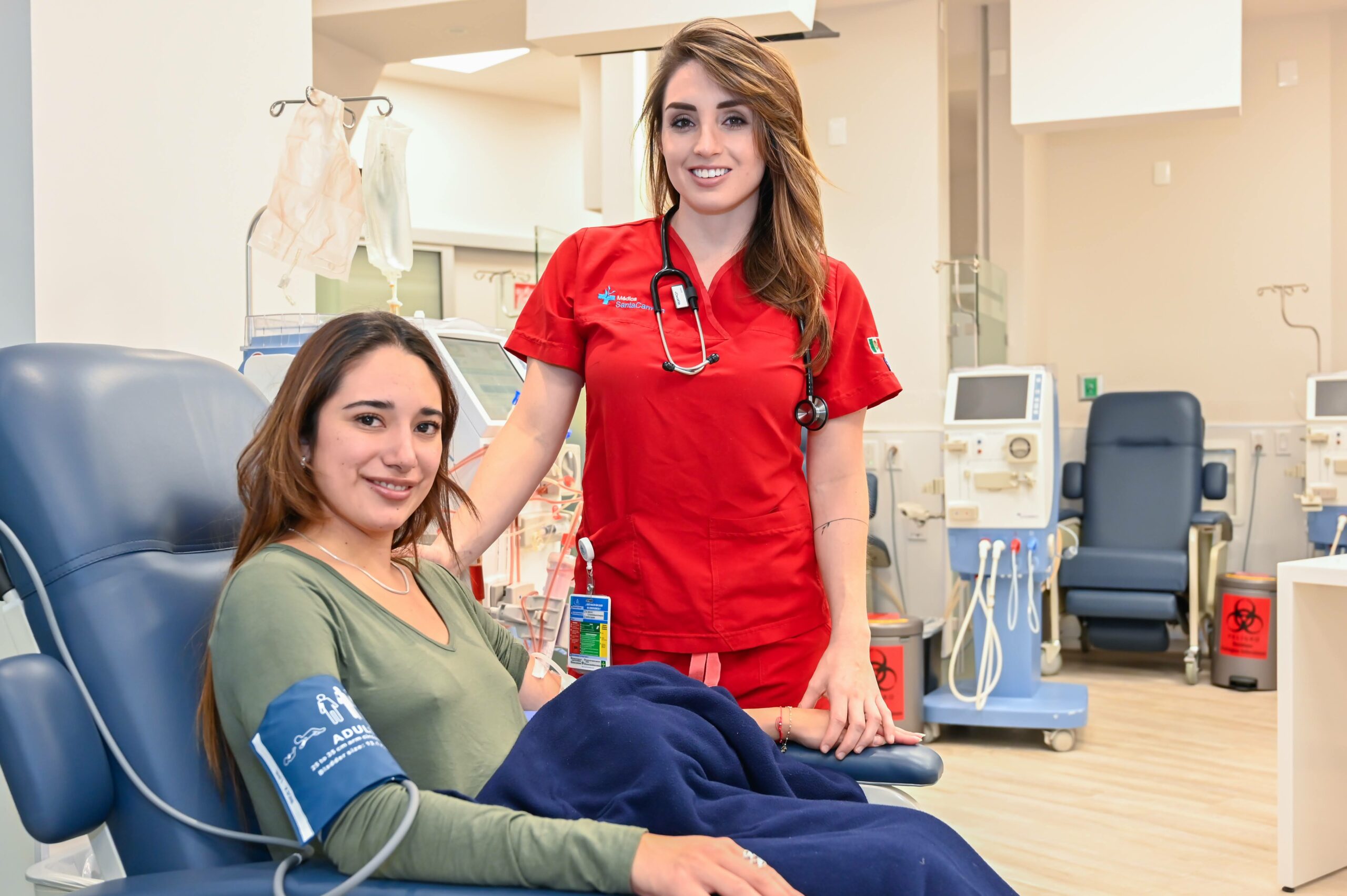
Get the best hemodialysis service dedicated to patients with chronic kidney disease who seek quality in their therapy, as well as top-notch facilities, comfort, efficiency, and safety in each of their sessions. By acquiring our services, you are guaranteed personalized and individualized care according to your needs, along with the assurance that you are being treated by skilled and specialized personnel in the field.
Benefits to patients:
- Quality Facilities: Our facilities are designed to provide you with the utmost comfort and privacy without compromising safety. In our hemodialysis rooms, you will find reclining chairs with individual screens to enjoy a movie, browse the internet via free Wi-Fi, or listen to your favorite music with headphones provided by the clinic.
- State-of-the-Art Technology: We use German technology machines to provide greater efficiency in your hemodialysis treatment, allowing us to accurately monitor every parameter during the session.
- Experience in Kidney Disease Care: Our partnership with Médica Santa Carmen, the most impactful renal health network in Mexico with over 12 years of experience, allows us to provide comprehensive care thanks to the expertise of its nephrologists, nurses, and on-call doctors specialized in kidney health.
- Affordable Plans: We offer accessible renal care options while guaranteeing high-quality, dignified service.
Schedule an appointment with our specialists today!
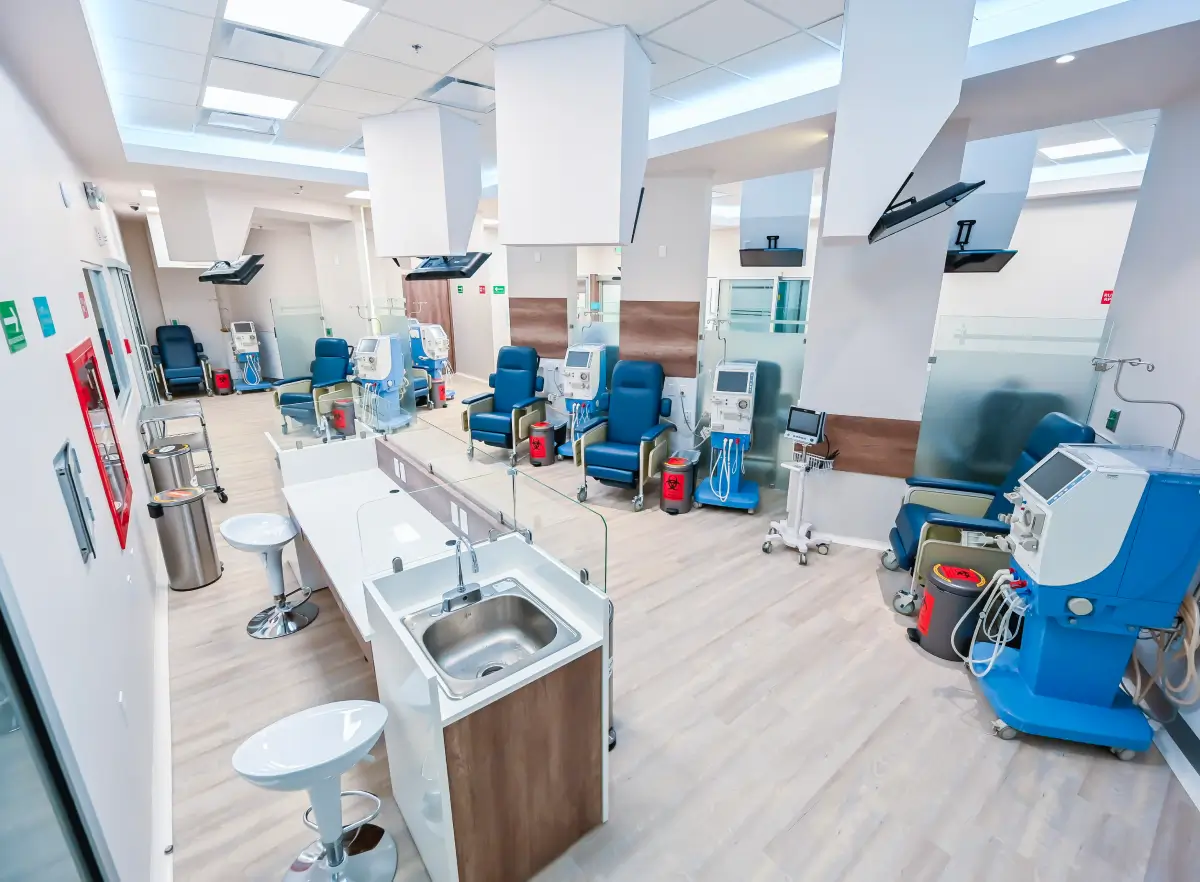
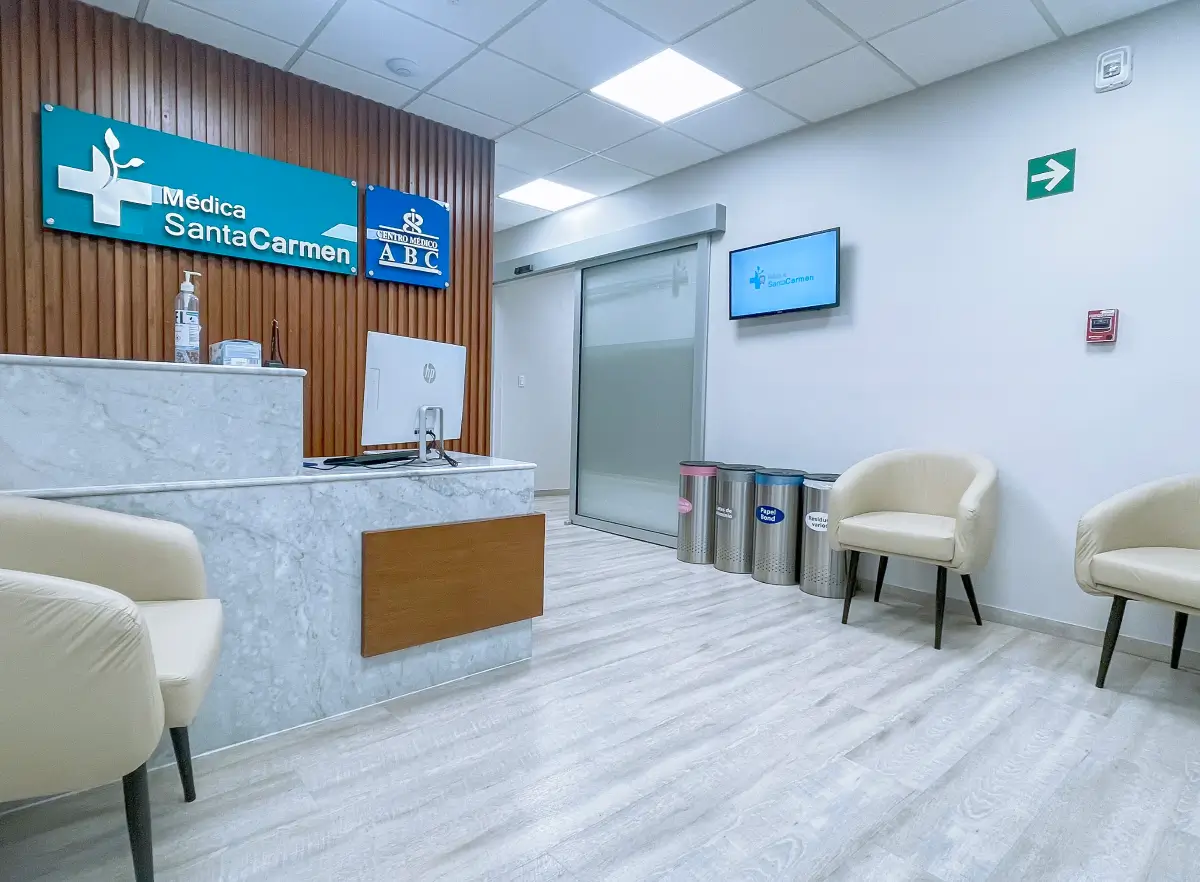
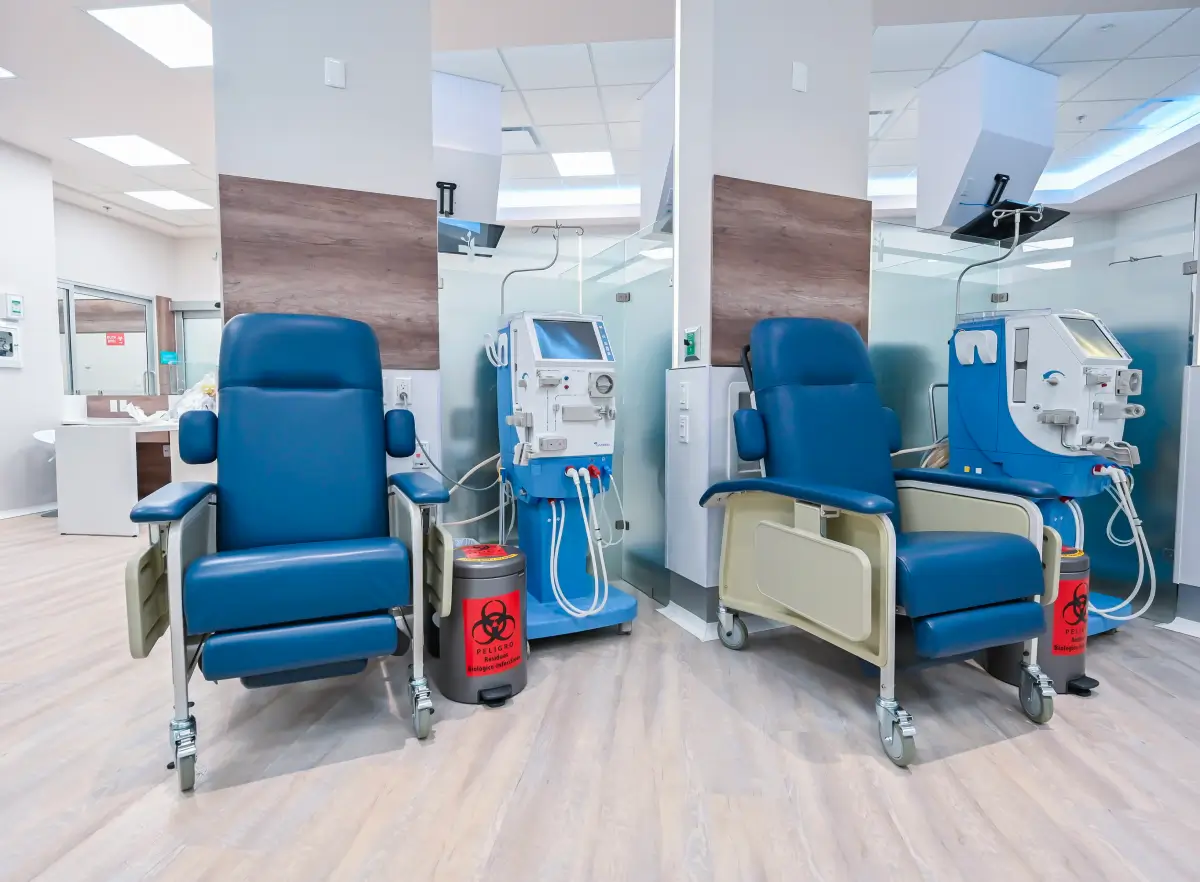
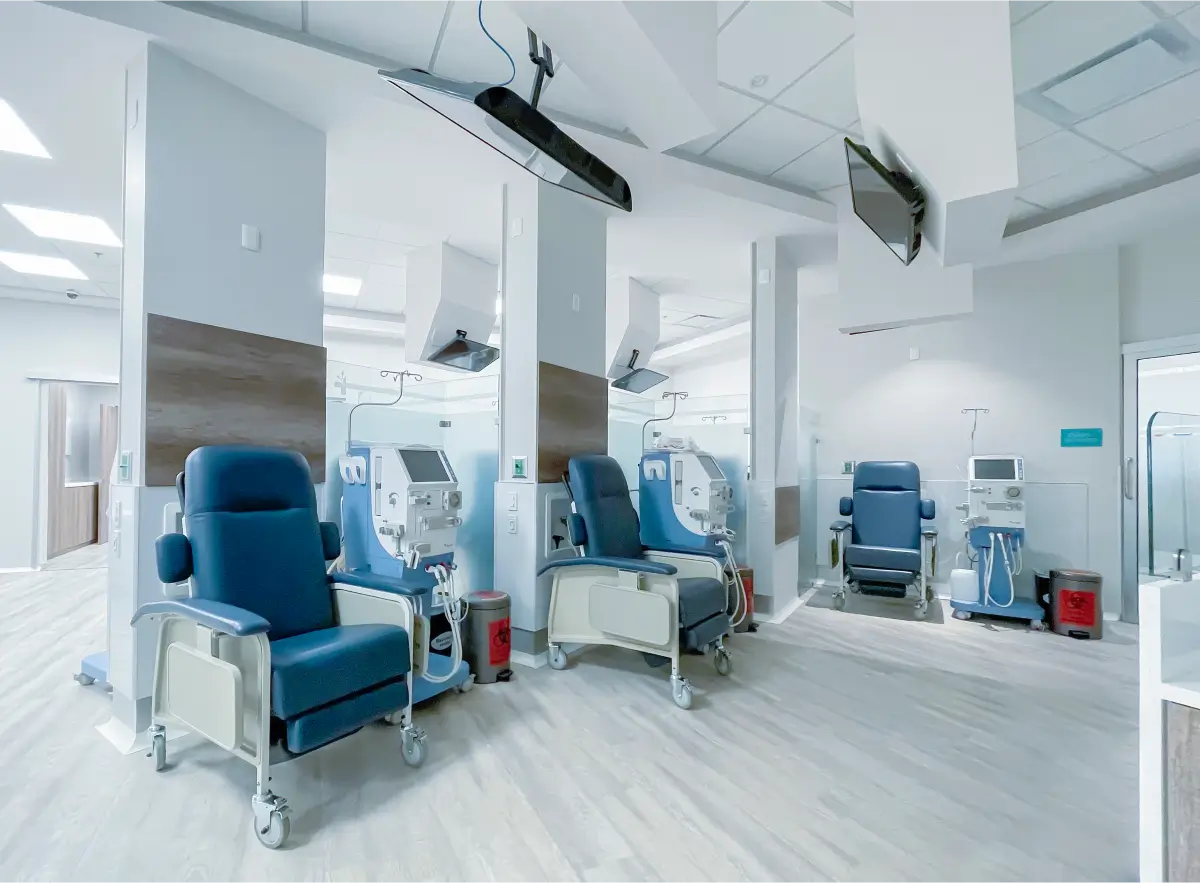
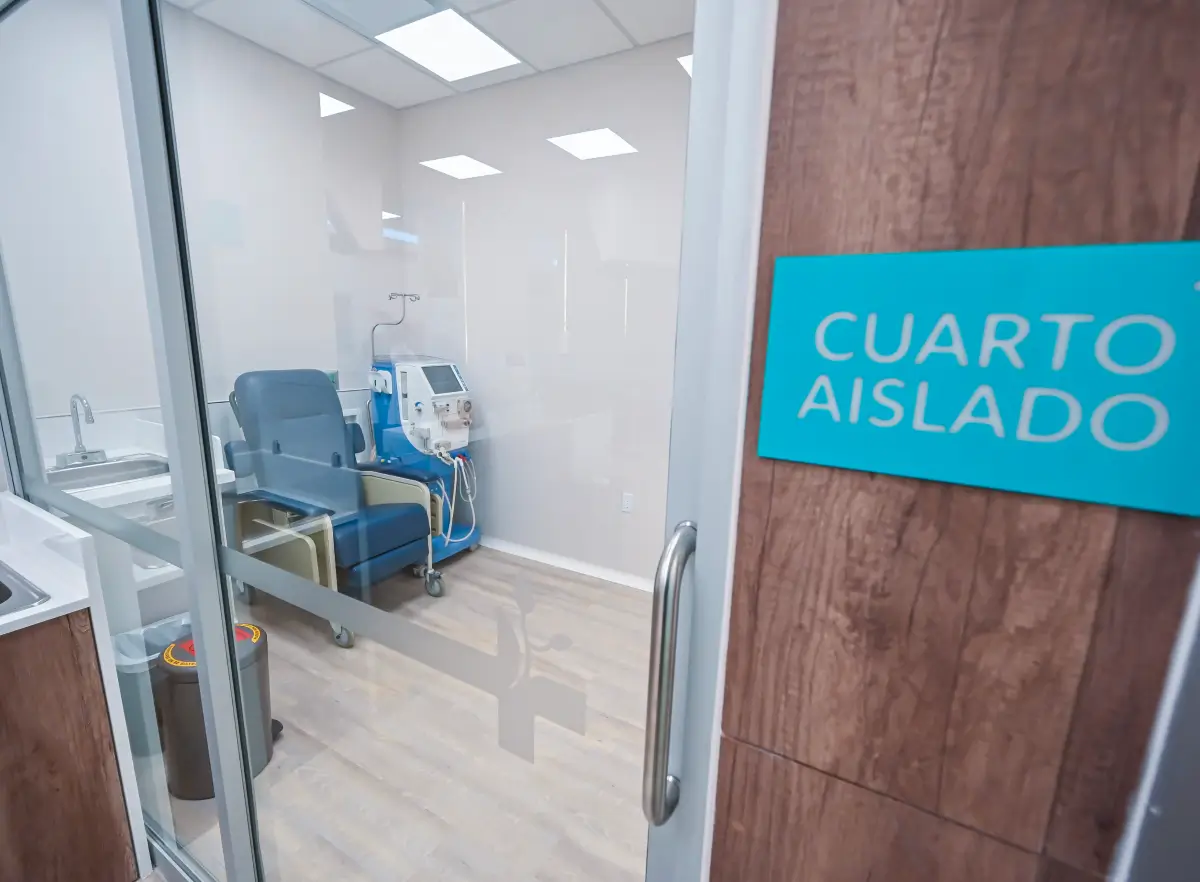
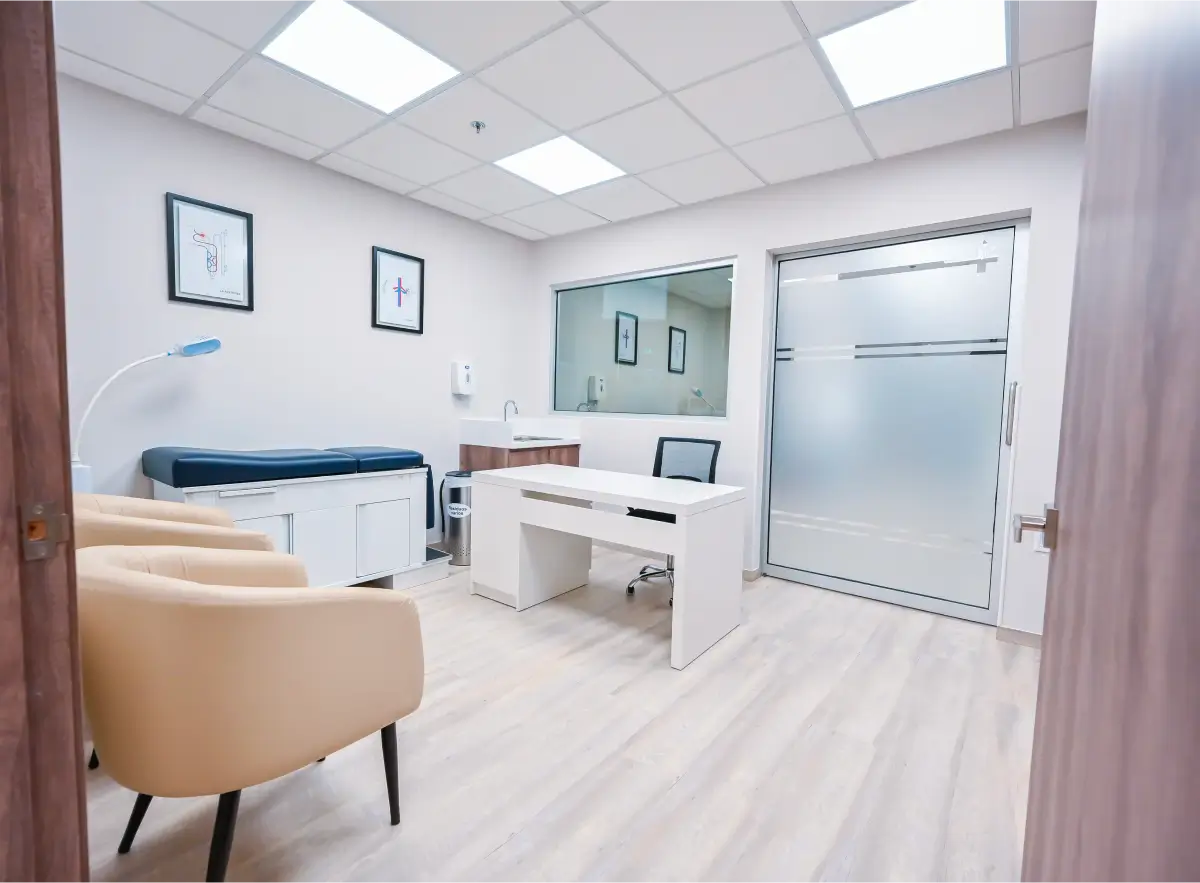
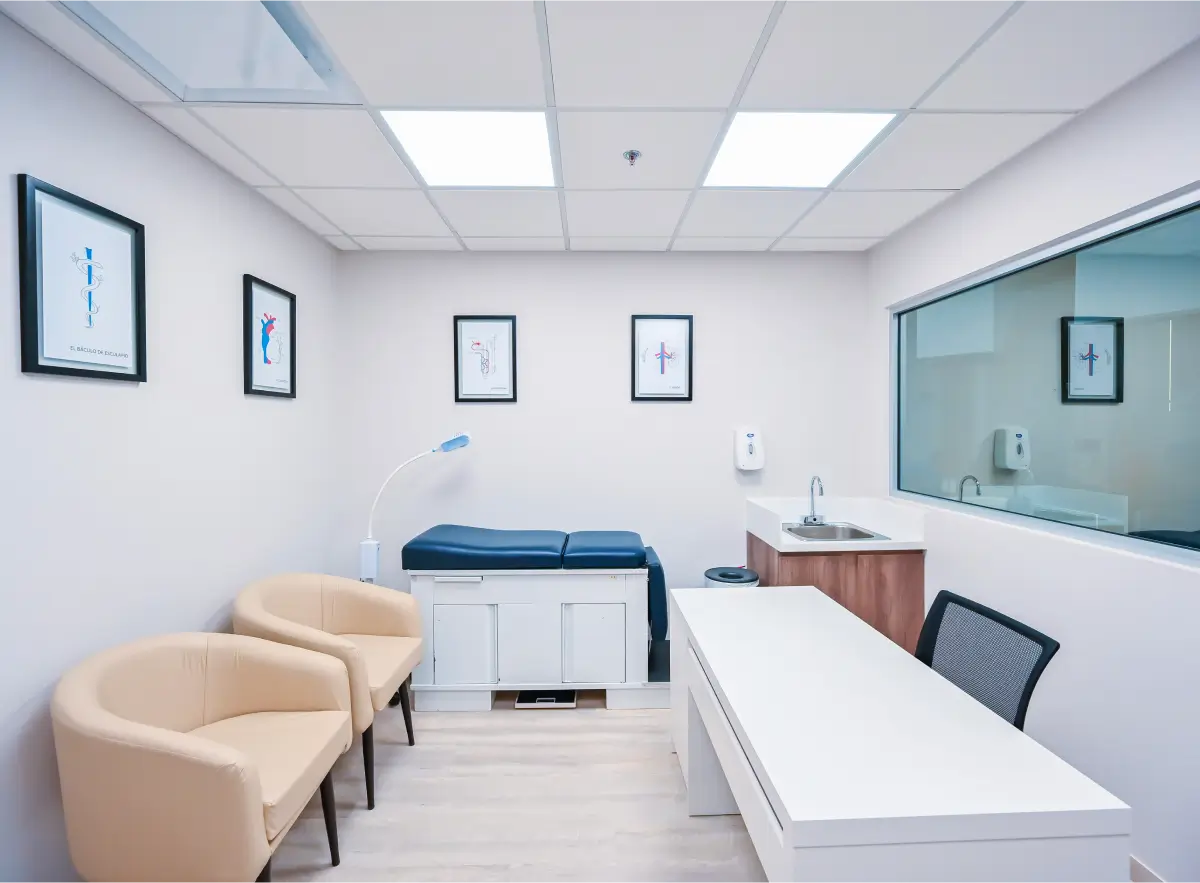
Hemodialysis Clinic: Observatory Campus
The hemodialysis clinic located at the Observatorio Campus is operated by ABC Medical Center.
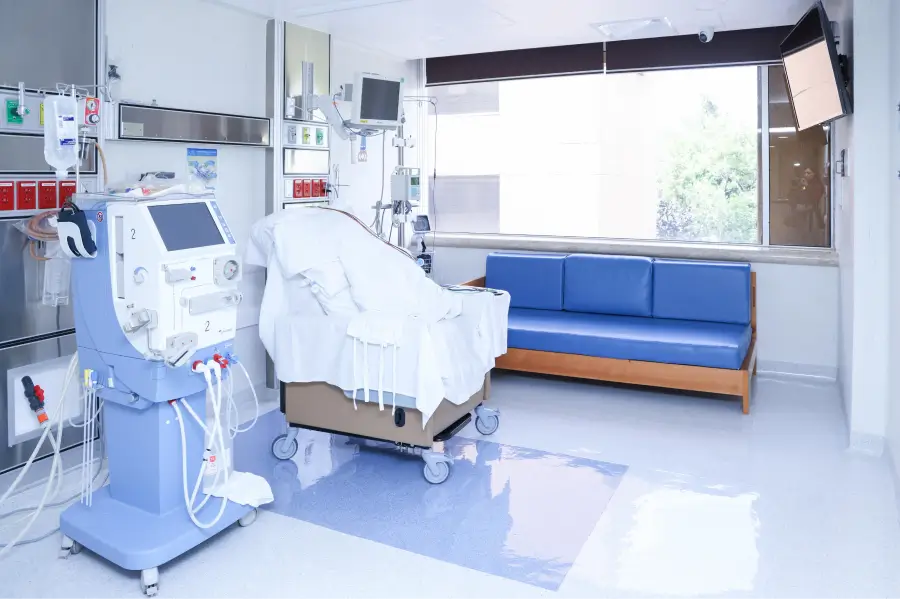
At the Hemodialysis Unit at the Observatorio Campus, we have enhanced our patients’ experience with private, individual cubicles that guarantee comfort and privacy. Additionally, we have incorporated cutting-edge technology and provide personalized care, including constant monitoring of vital signs and electrographic parameters to ensure maximum safety during each session.
Benefits to patients:
- High-Quality Facilities: First-class facilities that ensure your comfort, privacy, and safety. In our hemodialysis rooms, we offer cubicles with private bathrooms, reclining chairs, and the ability to adjust various preferences in your cubicle, such as lighting and temperature.
- State-of-the-Art Technology: We use state-of-the-art German technology to ensure the maximum efficiency of your hemodialysis treatment, accurately monitoring every parameter to guarantee quality and effectiveness.
- Experience in Kidney Disease Care: We have highly trained nursing staff and a specialized nephrology team focused on the care of hemodialysis patients. This collaboration ensures a comprehensive approach, providing personalized care, safety, and well-being throughout the treatment process.
- Private/Individual Cubicles: Patients can receive treatment in a more private setting, which can increase comfort and reduce anxiety.
Schedule an appointment with our specialists today!
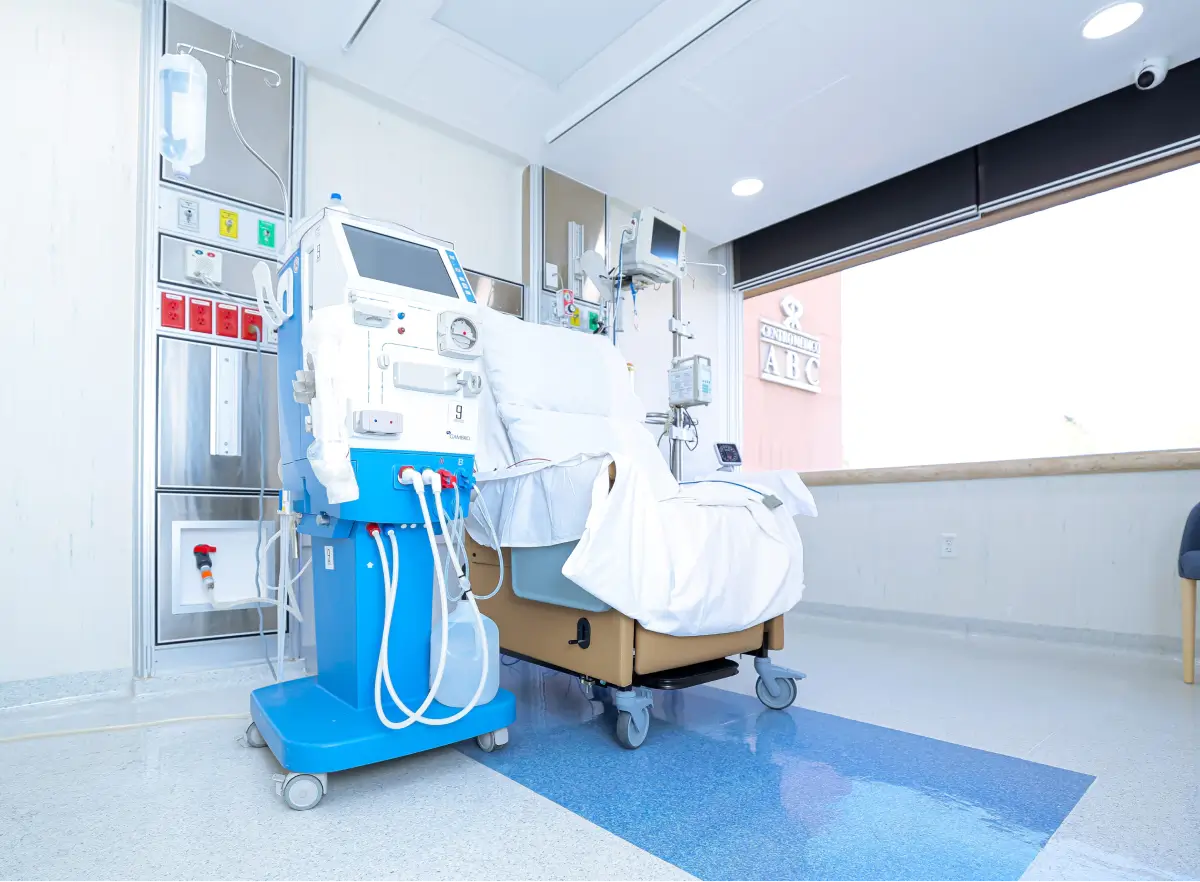
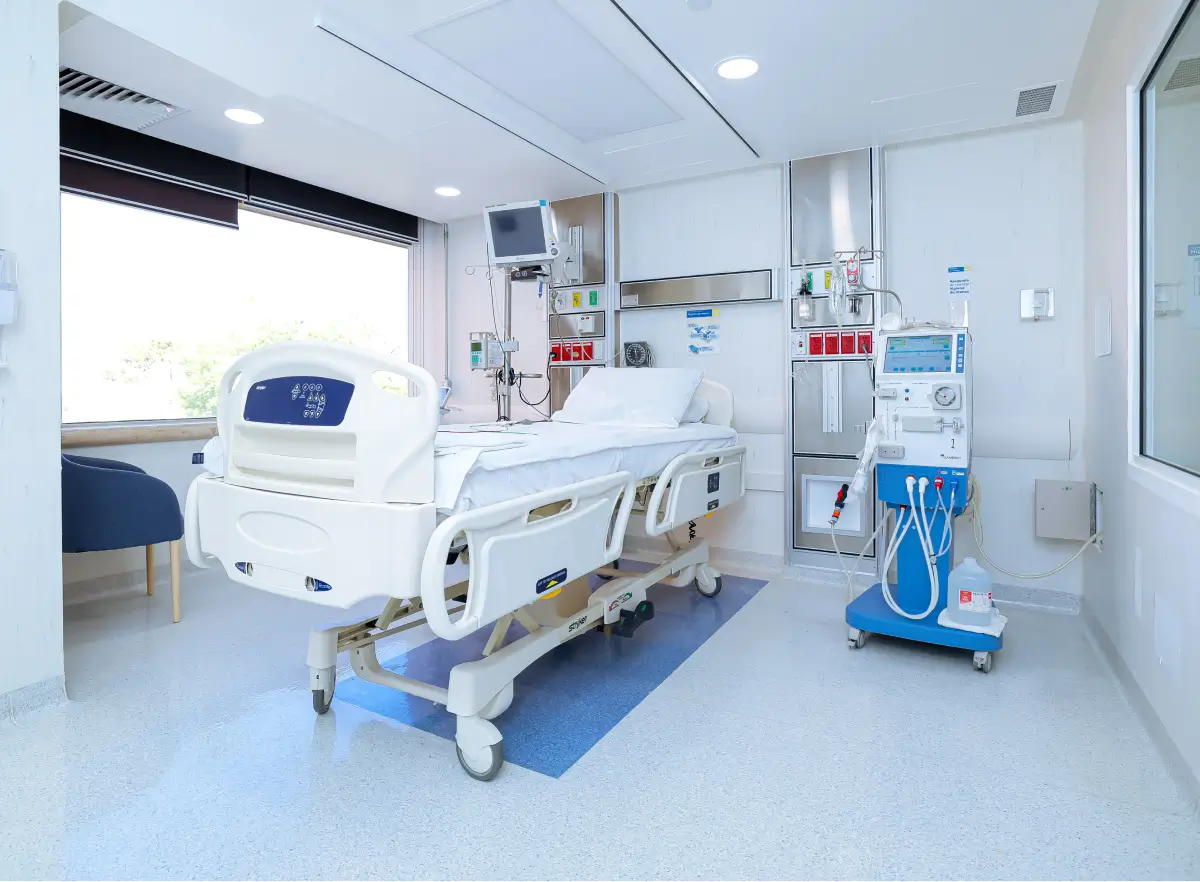
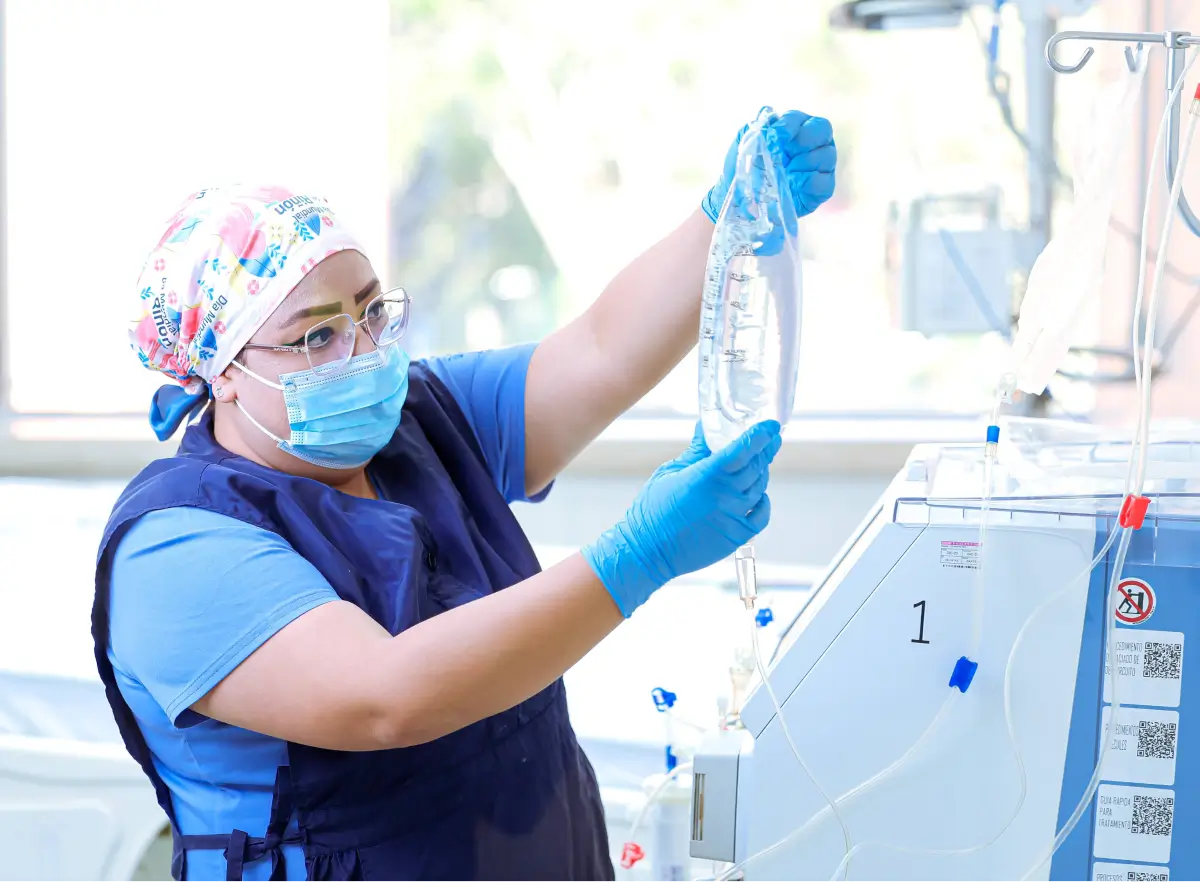
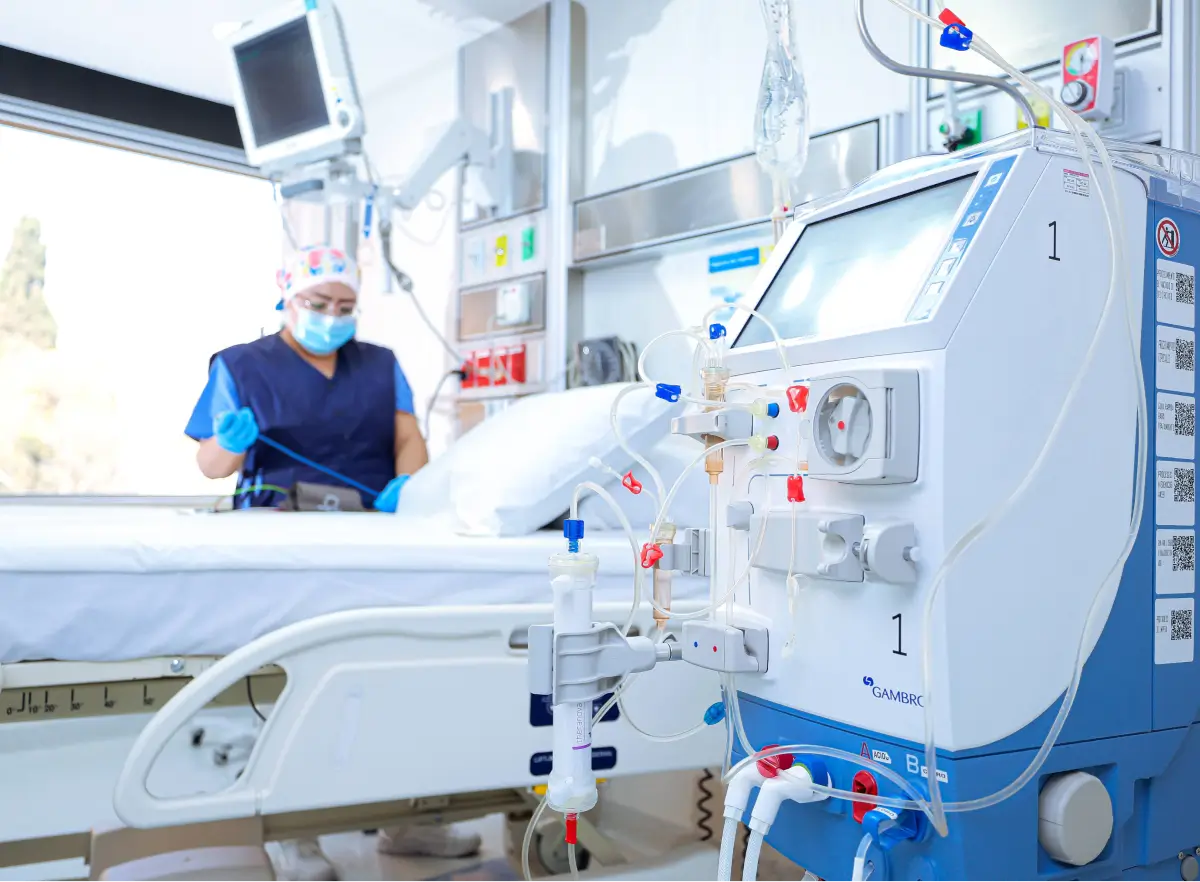
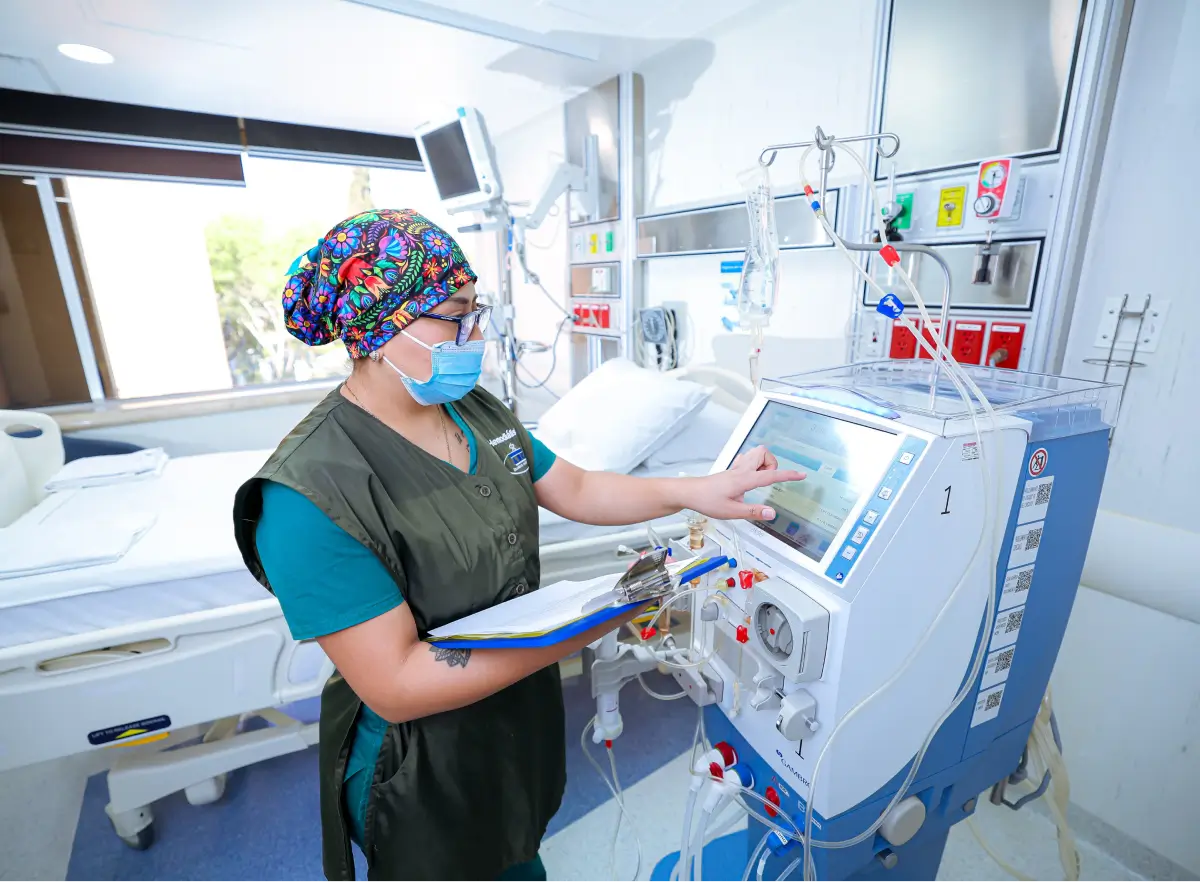
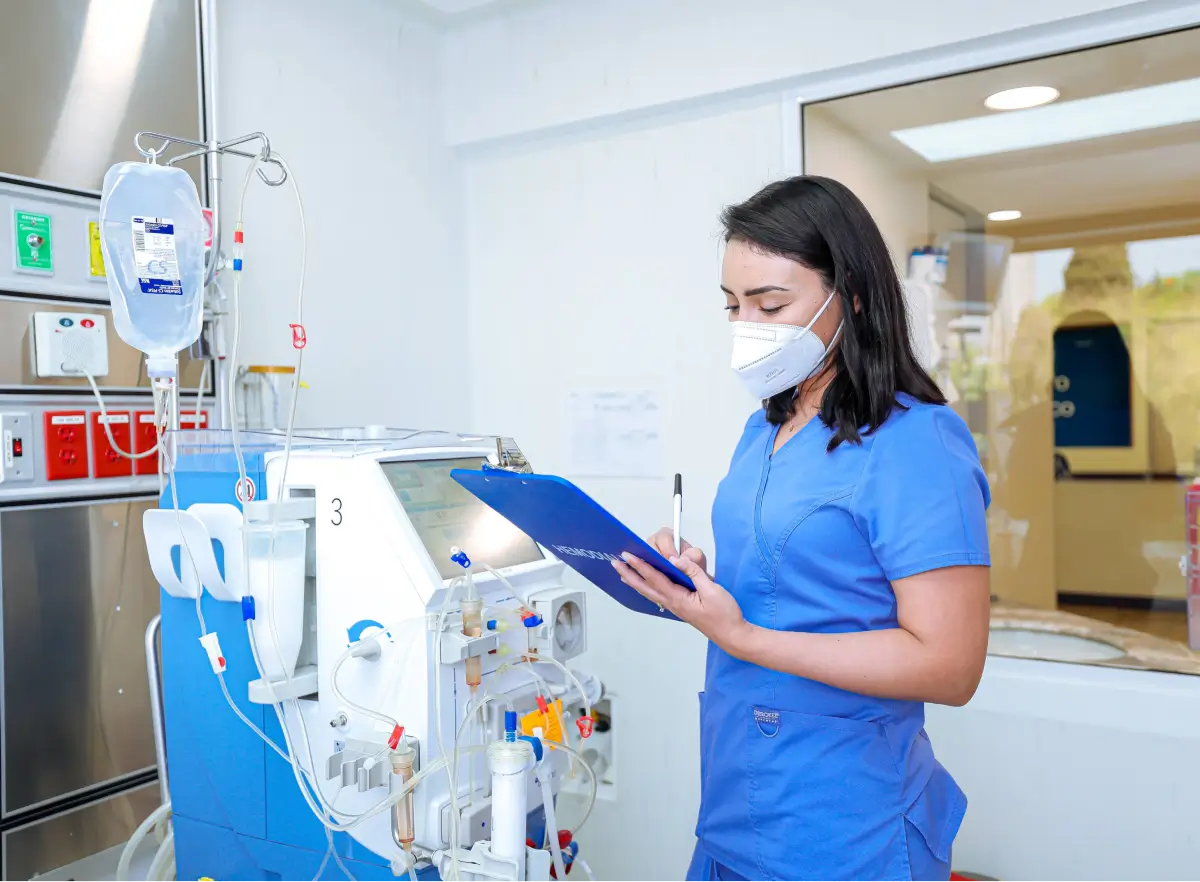
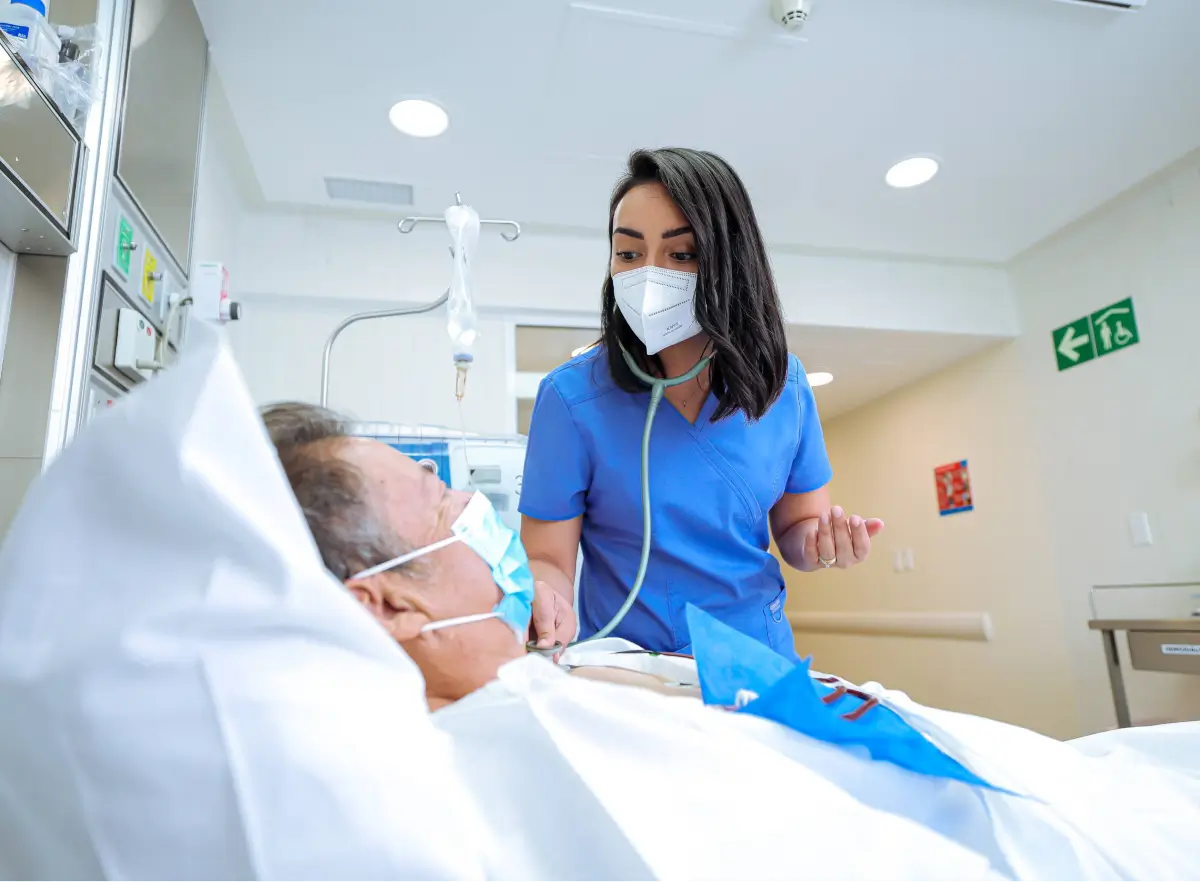
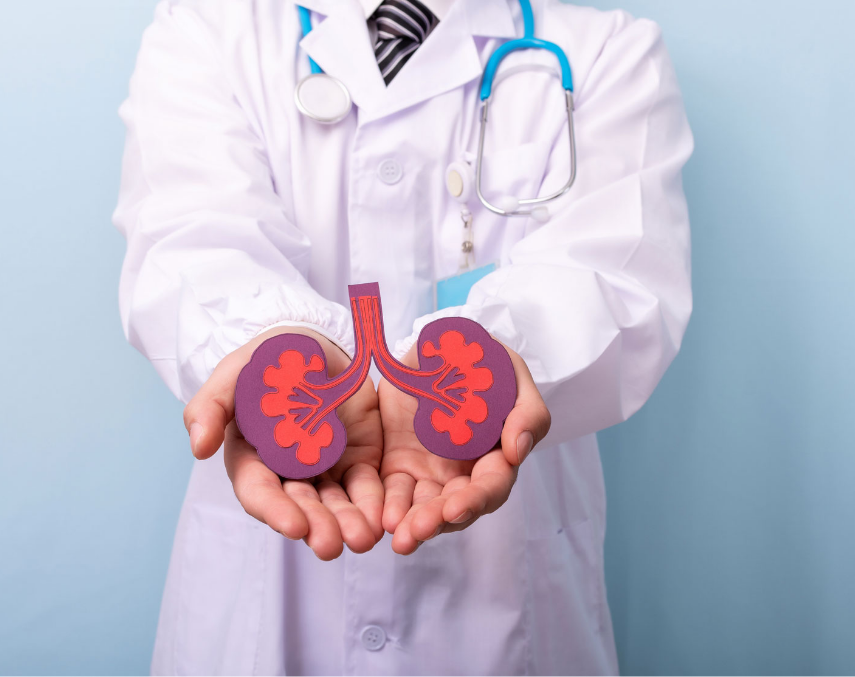
Chronic kidney disease
Chronic kidney disease, also known as kidney failure, is the progressive loss of kidney function. The function of these organs is to filter waste and excess water from the blood to eliminate it through urine. When kidney disease reaches its most advanced stages, kidney function becomes insufficient to maintain life and quality of life.
Chronic kidney disease is silent since it does not have symptoms and these can appear until the advanced stages.
Some risk factors for kidney failure are:
- Obesity.
- Diabetes.
- High pressure.
- Smokers.
- Family background.
- Cardiovascular diseases.

Chronic kidney disease
Chronic kidney disease, also known as kidney failure, is the progressive loss of kidney function. The function of these organs is to filter waste and excess water from the blood to eliminate it through urine. When kidney disease reaches its most advanced stages, kidney function becomes insufficient to maintain life and quality of life.
Chronic kidney disease is silent since it does not have symptoms and these can appear until the advanced stages.
Some risk factors for kidney failure are:
- Obesity.
- Diabetes.
- High pressure.
- Smokers.
- Family background.
- Cardiovascular diseases.
Some kidney failure symptoms

- Nausea.
- Vomit.
- Lack of appetite.
- Fatigue and weakness.
- Trouble sleeping.
- Change in the amount of urine.
- Decreased mental speed.
- Spasms and muscle cramps.
- Swelling of the feet and ankles.
- Constant itching.
- Chest pain, if fluid builds up on the heart lining.
- Shortness of breath, if fluid builds up in the lungs.
- High blood pressure (hypertension).
If you have any of the aforementioned symptoms or have any risk factors, contact a specialist to perform the corresponding tests and start timely treatment.

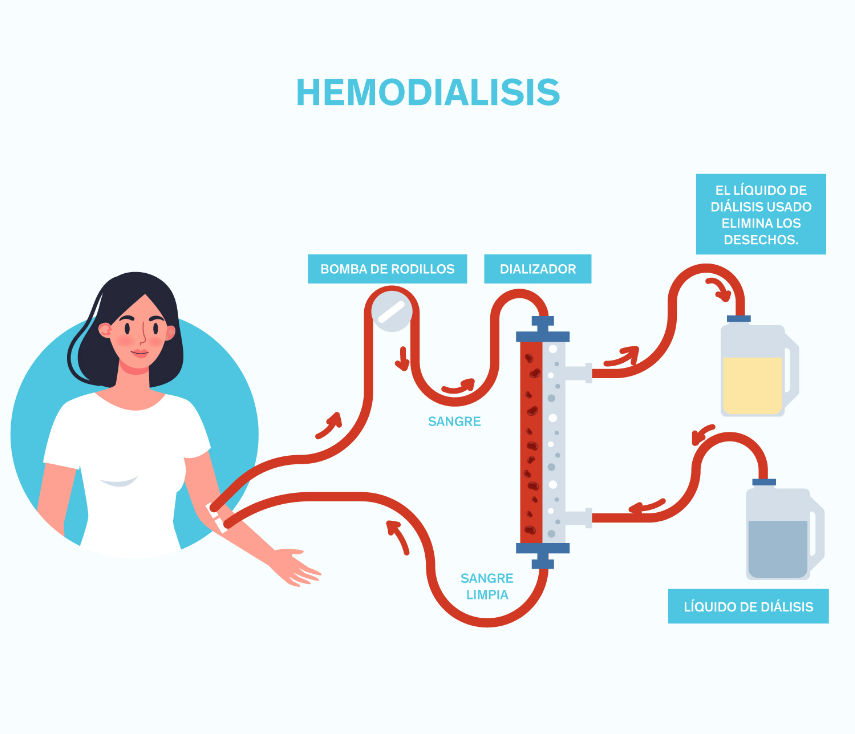
What is Hemodialysis?
Hemodialysis is a process that consists of cleaning your blood using a special type of filter called a dialyzer. To achieve this, it is necessary to create a special vascular access point through a minor surgery usually performed on the arm to allow chronic dialysis treatment, this may be through a catheter or the creation of an internal arteriovenous fistula (IAVF).
During treatment, the blood is cleaned with the dialyzer. The cleaning process does not cause any pain and during the first sessions, most patients show an improvement in their symptoms. Normally you will undergo hemodialysis two or three times a week with an average session of 3-4 hours for each treatment, depending on your physician’s indications.
Schedule an appointment with our specialists! We design plans to suit you.
There are three types of access in hemodialysis:
Fistula and Graft
It is done by joining an artery to a nearby vein under the skin to form a larger blood vessel. This type of access is recommended because it has fewer problems and lasts longer. A fistula should be placed early (several months before starting dialysis) so it has a long time to heal and is ready to use when you start hemodialysis. You must be assessed by a specialist called a vascular surgeon at least six months before starting dialysis.
If the blood vessels are not suitable for a fistula, a graft can be used. This involves joining an artery and a nearby vein with a small, soft, synthetic tube. The graft is completely under the skin.
Autologous fistula: when the blood vessels are not suitable for the construction of a fistula, this can be achieved by placing a graft.
Catheter
It is a tube of special synthetic material that is placed into a large vein in the body, usually one of the jugular veins that run from the neck to the chest. Catheters can also be used as permanent access when it is not possible to place a fistula or when due to specific circumstances it is considered the best option for the patient.
Dialysis treatment
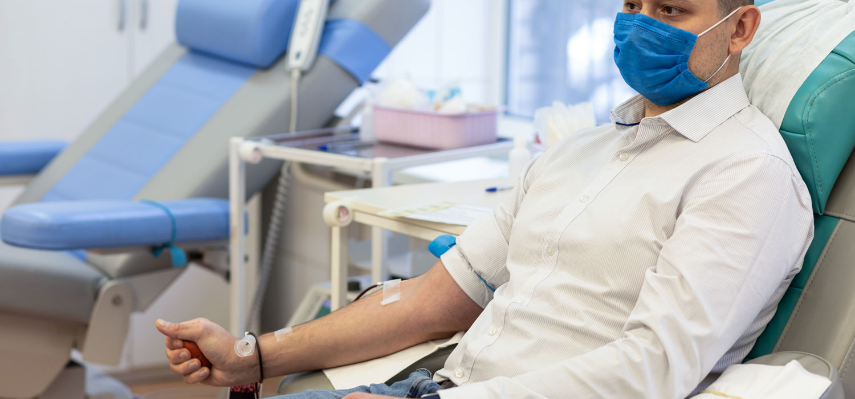
After the fistula or graft has healed and dialysis begins, two needles will be placed into your blood vessels each time you have treatment. The needles will then be attached to soft plastic tubes. A tube carries the blood from the needle to the dialyzer (the artificial kidney), where it is cleaned. The clean blood returns to you through the other tube.


Hemodialysis treatment follow-up

Blood tests and clinical follow-ups should be performed monthly by the nephrologist. These are very important because they let your healthcare team know how well you are and if any changes need to be made to your diet, your medications, or even the amount of time you spend on the dialysis machine.
Schedule an appointment with our specialists! We design plans to suit you.
Frequently asked questions
Our Locations
At ABC Medical Center, we are prepared to serve you in out two Campuses 24/24h, 7 days a week.
Campus Observatorio
Sur 136 No. 116, Col. Las Américas,
Álvaro Obregón, 01120, Cd. de México.
Tel. 55 5230 8000
Campus Santa Fe
Av. Carlos Graef Fernández 154, Col. Santa Fe,
Cuajimalpa, 05300, Cd. de México.
Tel. 55 1103 1600

